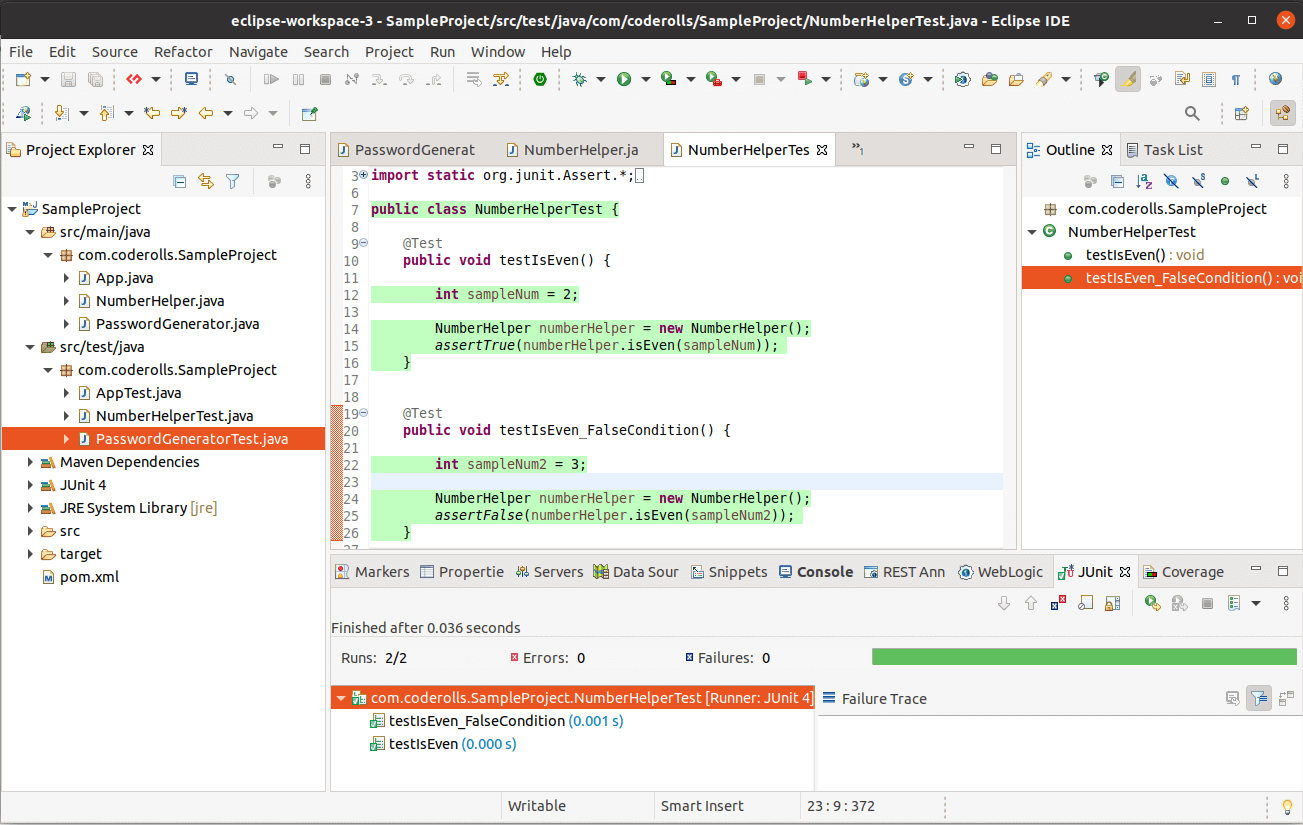In this tutorial, we will see the assertTrue() and assertFalse() assertion methods from the JUnit with various examples.
The Assertions is a collection of utility methods that support asserting conditions in tests.
assertTrue(boolean condition)
assertTrue(boolean condition) asserts that the supplied condition is true.
Example:
Here we will take a sample class NumberHelper.java. It has isEven() which checks if the number is even or not.
The code for NumberHelper.java is given below.
package com.coderolls.SampleProject;
public class NumberHelper {
public boolean isEven(int num) {
if(num%2==0) {
return true;
}
return false;
}
}
To test the isEven() method of the NumberHelper.java class we will create NumberHelperTest.java under src\test\java in our maven project.
In NumberHelperTest.java we will create a test method testIsEven() method to test the isEven() method.
package com.coderolls.SampleProject;
import static org.junit.Assert.*;
import org.junit.Test;
public class NumberHelperTest {
@Test
public void testIsEven() {
int sampleNum = 2;
NumberHelper numberHelper = new NumberHelper();
assertTrue(numberHelper.isEven(sampleNum));
}
}
As shown in the code, I have taken a sample even number 2.
We know that 2 is an even number so the isEven() method must return a true value. That’s why we are using assertTrue() to assert the behaviour of the isEven() method.
Once you run it as a JUnit test case (right-click in the unit test editor, Run as > JUnit Test) you can see the test is passed.
assertFalse(boolean condition)
assertFalse(boolean condition) asserts that the supplied condition is false.
Example:
We will take the same class and method (NumberHelper.java and isEven() method) for the assertFalse(boolean condition) example.
We will add an additional test method in the NumberHelperTest.java as testIsEven_FalseCondition().
Here we will take a sampleNum as 3.
We know 3 is not an even number, so the isEven() method must return false. To check it we can use assertFalse().
@Test
public void testIsEven_FalseCondition() {
int sampleNum2 = 3;
NumberHelper numberHelper = new NumberHelper();
assertFalse(numberHelper.isEven(sampleNum2));
}
Once you run this test, it will pass.
I have attached a screenshot below. It shows the test code with the assertTrue() and assertFalse() test method as well as both the unit test has passed.

The example Java programs used in the above article can be found at this GitHub repository, coderolls/junit-tutorial.
Please write your thoughts in the comment section below.